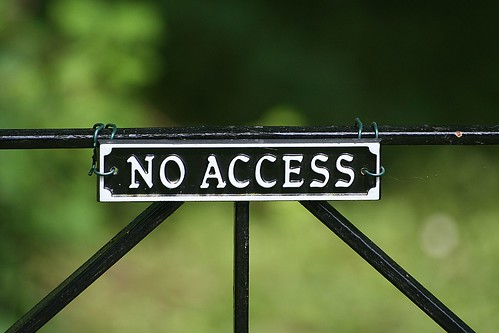Open knowledge? Spain must try harder
In our times, hackers like Julian Assange or Edward Snowden are the talk of the town. We could define them as sorts of Robins Hoods, heroics outlaw that “rob” information from the elites and give it to everyday people -that is to say, us- thanks to new technologies. Within this panorama of the free flow of information praise, Spain is a dark spot in Europe in terms of transparency. The land of Cervantes is the only European country with more than one million habitants to not have a transparency law.
Are you Spanish and want to know how your tax money is spent? You can’t. Are you a politician who has hidden an invoice? No problem. What is accountability? We don’t know. Actually, in Spain we don’t have a translation for the word accountability, it doesn’t exist in our dictionaries.

In 2012, the Spanish Council of Ministers approved a Transparency bill that at present is being discussed in Parliament. The problem? The text is below the international standard and doesn´t guarantee the right to know as a fundamental right. Leading pro-transparency organisations, such as Access Info Europe and Civio foundation, tried to introduce some changes in this draft to improve it and make it worthwhile, but with no success.
Thus, if the Spanish Parliament and the Senate finally approve the bill this year, Spain will have an access to information law weaker than, for example, the one recently approved in Rwanda.
In other words, it would be a law that doesn’t include political parties, unions or the Judiciary. It doesn’t guarantee an independent transparency watchdog and excludes certain kinds of information from being accessible.
New ideas thanks to open source software and open data
Despite the fact that the Spanish government doesn’t care too much about the right to knowledge, civil society is organizing to know better how to find useful data online and visualize it to make it comprehensible.
Four months ago, the Spanish chapter of the Open Knowledge Foundation organised, for the first time in Spain, a Conference in Data-driven Journalism and Open Data, which was held simultaneously in Barcelona and Madrid from the 24 to the 26 of May.
Visualization, data, maps, transparency, new ideas… A lot of revelling projects were presented during those days. A Hackathon took place and there was also a Barcamp to present twelve different Data Journalism local initiatives.
The project atNight was one of the most beautiful and useful projects presented at the Conference. The aim of the initiative is to “constitute a first step towards the construction of nightscape image” of Barcelona, “a necessary first contribution to the (re)definition of the night-time identity” –as they explain on their website– to open a debate about the public lighting consumption in this capital.
Another example of visualization that chases new levels of service for the public was Proyecto Censo. An initiative of the Argentinian newspaper La Nacion (deeply involved in data journalism projects), that examines data from the National Institute of Statistics and Census of Argentina (Indec) and the evolution of different patterns from 2001 and 2010.
Or the project Govern Obert, which aims to organise the complex structure of the Catalan Government –which consists of more than 7.000 entities– especially at times when financial cuts are being made and doubts arise as to the sustainable viability of such a huge structure.
In the midst of a crisis of confidence in Spain’s governing institutions, projects like these help to demonstrate that what the country needs is a high-standard transparency law in order to continue allowing access to relevant data and new knowledge, and to better understand the world we live in.